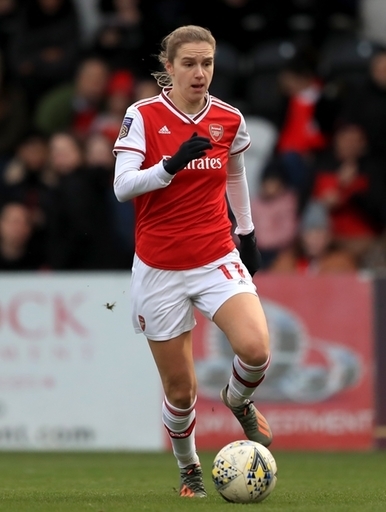Disability Awareness Month runs until December 20, and Harry De Cosemo, an FWA member who covers football in the North East for publications including The Morning Star and Eurosport, explains the challenges – and rewards – of his life as football journalist with Cerebral Palsy.
Writing this article is going to be difficult. I know my disability better than anybody; it has been my constant companion and part of me for my entire life. Yet, off the top of my head, I can think of a number of people who can articulate its impact much better than I ever could. For most of my time, I have ignored it, cursed it and rejected it. I just wanted to be ‘normal’, and having any sort of disability, mental or physical, often robs you of that in the smallest and strangest ways.
My name is Harry De Cosemo, I am a freelance football journalist and Football Writers’ Association member. Disability Awareness Month is running between November 18 and December 20, and I am going to do my best to talk about my experience of living with cerebral palsy and how it has affected my journey into our industry.
It would be best to first explain my disability simply and concisely; brain damage from birth resulted in three issues: the cerebral palsy itself, which means I cannot use the limbs down my right side properly, partial sight, which is fairly self explanatory, and nystagmus, an involuntary movement in my eyes.
I grew up obsessed with football; a Newcastle United fan in North Yorkshire. Physical and mental development was even more pressing from an early age, and my desperation to mimic Alan Shearer and Les Ferdinand in my back garden inadvertently improved my ability to walk, run and stand. I interviewed Les last year, and felt too embarrassed to tell him that story.
Keeping up with my two brothers, both of whom were more gifted with a ball at their feet than me, and my school friends was tough; I was sufficiently self aware to realise that chasing the ultimate dream of playing for Newcastle wasn’t worth it. When my elder sibling had an extended trial with the club in 2008, it became harder to accept for a while, but I wanted him to do what I couldn’t. I tried my hand at CP football in my teenage years, but it never really grabbed me; by then I had developed my love for writing. The subject on my mind was almost always football, and journalism seemed like the perfect way to combine my two passions; the rest, as they say, is history.
Childhood heroes have been at the centre of a lot of my career decisions. I have written a book about Sir Bobby Robson’s five-year reign at St James’ Park, which will be published next year. The process of formulating and pitching my idea, sourcing and conducting interviews and making 80,000 words flow has improved my self belief to the point where I am able to accept my disability and talk about it openly for the first time in my life.
As a freelancer, pitching is a crucial aspect of my livelihood, and before the book process began in March, I was petrified of putting myself out there. I hated the idea of ‘bothering’ somebody with a phone call, but felt appreciated and respected by those who picked up at the other end when Sir Bobby was the reason. Too often, I suffered from imposter syndrome, my disability most likely being the reason for that, but I have shown myself I can do what any good journalist can.
I am not attempting to speak on behalf of anybody but myself; a problem with the discourse surrounding disability and disabled people is a need to pigeonhole how it can affect somebody. The truth is, there are so many different facets and no two people have the same experience, whether they have CP or separate conditions.
On the surface, I use one hand for almost everything I do, I walk with a slight limp and I’m slower than almost everybody when it comes to completing tasks; in that sense, I am easy to diagnose. But I have also suffered from crippling self doubt and anxiety my entire life; I know, having spoken to others within journalism, that those issues are commonplace. The point I’m making is my disability is not simply physical as it may appear, it is one very complex cocktail which changes and develops as time goes on.
My career has followed a similar path to many of my generation; I went to university, got my degree, and joined the rat race in the hunt for work. There are thousands of people who are doing what I am doing, and as a freelancer from the moment I left education, I have found it difficult to quantify things. It can be hard not to feel unemployed at times; I’m not sure if I’ve had my ‘big break’ or whether it will ever come. What I do know is I work with and for some superb people and love my job.
I suppose the most crucial step to date came in 2018 when I began covering North East football for the Morning Star newspaper. That meant, prior to lockdown at least, regular visits to clubs like Newcastle, Middlesbrough, Sheffield United and Hull City. This is a role for which I am so thankful to the Star’s sports editor, Kadeem Simmonds; it is he who entrusted me with covering matches at the highest level in my area, allowing me to grow further into the industry in a way that fitted my needs.
Press rooms are intimidating places; they are often filled with people who know the sport and field inside out. You have to make yourself feel at home; you have to make yourself known. This is just with your peers, let alone asking managers questions when the pressers are underway. Early on, I would hide my hand in my pocket as I entered the room, to make my CP more difficult to be seen for fear of awkwardness and embarrassment.
For the benefit of every single journalist I have ever met face-to-face, I must state that I have never been made to feel uncomfortable in any way relating to my disability. If you see me in person, it is almost impossible not to notice my condition, especially if we meet every other week. Those with whom I cross paths regularly have almost certainly seen it and carried on to greet and treat me normally. You may think this is courtesy or the obvious thing to do, but trust me, it doesn’t always happen. I’m really thankful for that.
Working online has been a safe haven. It has allowed me to create a body of work without fear of being seen differently. There is evidence that I am not anyway, but working on-site does have its difficulties. In my first few months on the job for the Star, I was covering Newcastle vs Bournemouth at St James’ Park, and in the second half I began to hyperventilate and feel nauseous. There was no obvious reason for it, but I was having a panic attack; I lost control for a few, mad, scary minutes right there in the press box. It resulted in my right arm tensing up and my eyesight getting worse. That is just one example of how I can be affected in different ways at unexpected times. Many other people who suffer from similar conditions will, I’m sure, understand how debilitating this can be.
Logistically, too, there are challenges. Midweek games at some grounds are unattainable because I can’t drive, and the last train will be too busy for me to cope. In that sense, regularly being confined to zoom press conferences has actually allowed me to work more. I miss the atmosphere, as everybody does.
I also work regularly for Eurosport, combining live commentaries and on-the-whistle match reports; the buzz of a late goal and balancing a tight deadline can bring extra strain because of my physical deficiencies, but I have found a way to handle it that works for me; practice makes perfect.
Having no drivers’ license has significantly reduced my opportunities for full-time employment, mainly because most job adverts list it as a requirement. As soon as I see that, regardless of its locality or my suitability, I put my laptop down and walk away. I think this is evidence of the issue within disability equality and awareness; there is no alternative for those who can’t drive, and yet nobody asks why.
It should be said that having physical disability does come with a caveat not seen by other marginalised demographics; the issue itself can directly result in an inability to work for a variety of reasons. I understand why driving is key for a football journalist, especially one who lives away from a major city. But this is just one example of why the disability conversation needs to be had, to explore if anything can be done to make it fairer for those who live with different conditions to thrive.
Acknowledgement would be progress at this early stage. Football reporting needs to be more accessible; while I have been made to feel comfortable, I have always feared mentioning my disability to editors in case they assume I can’t do the job. It always felt like it would be an extra hurdle if it came up; now I’m looking to challenge that thought process, if it is indeed true.
I hope that, by writing this piece, I am shining a light on something that has not been considered before. I’m sure there are other journalists out there, and even other FWA members, in a similar boat to me. As things stand, though, I haven’t seen any on my admittedly small patch. More disabled people in high places within the industry will breed confidence for those who don’t feel represented.
There are a few people who have helped my career along in different ways. I opened up to The Athletic’s Chris Waugh about the difficulties of joining such an established press pack as the North East’s at a presser last year, and he offered superb advice and is someone I can rely on today. His colleague George Caulkin, who wrote the foreword for my book, has helped me a lot, while fellow Star reporter James Nalton has been great, too. I mentioned this piece to all three of them, and they were all very supportive.
Others who I feel compelled to mention here are Sam Marsden of ESPN, who set me up with the best work experience possible in Barcelona five years ago, Joe Brewin at FourFourTwo, whom I worked opposite for a week in my uni days and regularly pitch to now, and Tom Adams, Head of Digital at Eurosport. He invited me to their London offices in May 2019 and allowed me to learn the ropes for my remote work, without any pressure; working with him has been a very positive experience. There are so many other great people on the circuit, but I owe a lot to all of those mentioned. This article is essentially about confidence growth, and without them, I wouldn’t want to write it.
Thank you to Carrie Brown, chair of the FWA, for her understanding, encouragement and for allowing to share my perspective, and thank you very much to you for reading.

















